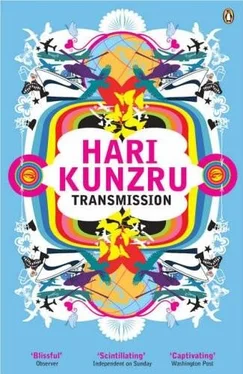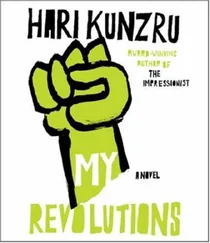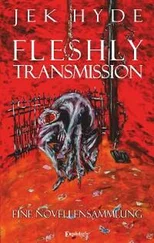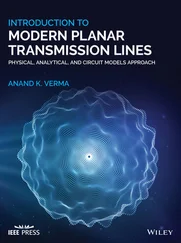Slang terms for coffee: java, a cup of joe. In his first weeks in America, he had said these words to the mirror. Later he had carried his plastic beaker to work like a runner with the Olympic torch. He wished he still had that cup. As he stood outside Starbucks, a paper cup heating his hand, he conjured up a soothing image of a darkened room and a TV set. A TV not tuned to a news channel. A TV showing an easy-to-follow narrative fiction in which he was not the central character. Preferably with romance and songs. And a happy ending.
A block behind the San Ysidro Factory Outlet Center was the Riverside Motel. Carrying his coffee in one hand and his bag in the other, Arjun crossed the road and checked in, taking a room on the second floor with a south-facing balcony. The two teenage boys who had followed him all the way from San Diego watched from the parking lot as he briefly walked out on to it to look at the view. He took a sip of coffee, then went back inside, closed the curtains and stepped into legend.

‘We want to abolish the unknown,’ writes one Leela researcher. It is a common enough desire. As humans, we want to know what is lurking outside our perimeter, beyond our flickering circle of firelight. We have built lenses and Geiger counters and mass spectrometers and solar probes and listening stations on remote Antarctic islands. We have drenched the world in information in the hope that the unknown will finally and definitively go away. But information is not the same as knowledge. To extract one from the other, you must, as the word suggests, inform. You must transmit. Perfect information is sometimes defined as a signal transmitted from a sender to a receiver without loss, without the introduction of the smallest uncertainty or confusion.
In the real world, however, there is always noise.
Since 1965 the Russian Academy of Sciences has published a journal called Problems of Information Transmission. It is, insofar as it is possible for a scientific publication (even a Russian one) to convey an emotional tone, a melancholy read. Threaded through recondite papers on Markov Chains and Hamming Spaces and binary Goppa codes and multivariate Poisson flow is a vocabulary of imperfection, of error correction and density estimation, of signals with unknown appearance and disappearance times, of indefinite knowledge and losses due to entropy. Sparse vectors are glimpsed through a haze of Gaussian white noise. Certainty backslides into probability. Information transmission, it emerges, is about doing the best you can.
In media dissections of the impact of the Leela variant viruses, the period when there was most noise in the global system has come to be known as Greyday. Greyday certainly lasted more than a day and was only grey in the most inexact and metaphorical sense, which means the person who invented the term was probably not an engineer. Nevertheless, the name captures a certain cybernetic gloom that hung about the time, the communal depression of network administrators yearning for perfection while faced with appalling losses, drop-outs, crashes and absences of every kind.
Greyday was an informational disaster, a holocaust of bits. A number of major networks went down simultaneously, dealing with such things as mobile telephony, airline reservations, transatlantic email traffic and automated-teller machines. The details of those events are in the public domain. Other systems were undoubtedly affected, but their military, corporate or governmental owners have been unwilling to discuss in public what may or may not have happened. As for the number of smaller cases, the problem becomes one of counting. Home computers? Individuals? Do you know anyone whom Leela did not touch in some way?
Leela’s noise passed effortlessly out of the networks into the world of things. Objects got lost: a van carrying armaments from a depot in Belgrade; a newly authenticated Rembrandt. Money in all sorts of physical forms dropped out of sight, but also money in its essence, which is to say that on Greyday a certain amount of money simply ceased to exist. This is a complicated claim. Money tends to virtuality. It hovers about in the form of promises and conditionalities, lying latent in the minds of market technicians until actualized through confidence, central bank fiat or a particularly long lunch. It is hard, in the end, to judge whether some of the money which did not exist after Greyday actually existed before it. Had Greyday not happened, perhaps a certain amount of unborn money might have come into the world. We cannot be certain. We do know that money disappeared, but how much and where it went are questions to which the market makers don’t really want an answer. Better, they say, to forget about it. Better to move on, dream up more.
So Greyday names a moment of maximal uncertainty, a time of peaking doubt. We have records of events which may not have taken place. Other events took place but left no record. All that can be said with honesty is that afterwards there were absences, gaps which have never been filled.
Empty hotel rooms, for example. Three rooms whose occupants are no longer there. When a person disappears, the objects they leave behind can be almost unbearable in their muteness. The more personal they are, the more they seem to underline the absence of their owner. The chambermaid at the four-star Hotel Ascension in Brussels turns down the bed, leaves on the pillow a chocolate and a voucher for a complimentary shoe-shine. On the dressing table is a litter of British coins, taxi receipts and other small items. Walkman headphones. An electrical adaptor. She hangs the suit-carrier in the cupboard and moves the washbag from the top of the television into the bathroom. The passport on the bedside table she does not touch. The maid working the morning shift receives no response to her knock. She enters to find everything exactly as her colleague left it. The bed has not been slept in. The toothbrush is dry. At lunchtime, the management take a call from a business associate of the occupier. He has failed to keep an appointment. Ten minutes later he calls again. At two, the hotel bills the absent businessman for an extra night. The police are not called until the following morning, by which time it is clear that something untoward has happened to Guy Swift.
A room upstairs at the Clansman’s Lodge Hotel in Scotland. One of the better ones, with a view over the garden and the loch. A mess of chintz and lace and rose-patterned wallpaper. A bowl of pot-pourri on the nightstand and a white plastic drinks-maker on the dresser, next to a little basket containing filters, creamer and vacuum-packed sachets of coffee. Most of her things are there, the expensive Banarsi saris, the make-up bags, the rows of spray cans and bottles in the bathroom. She has left a little portable DVD player and a stack of unwatched discs, still in a duty-free bag. She has left the giant stuffed monkey someone bought her as a get-well present. Under the bed is an empty cigarette packet and a torn-up copy of the shooting script, but Leela Zahir herself is not there. Her mother, sedated and incoherent, manages to communicate that she thinks some clothes have gone. Also her daughter’s laptop. Iqbal is holding Leela’s passport, but it is possible she has another. The police are reassuring. In rural Scotland, an Indian girl will not be able to travel far without attracting attention.
Events at the Riverside Motel in San Ysidro are more violent. Acting on information provided by a member of the public, the FBI has traced a man on their most-wanted list to a room on one of the upper floors. Though the suspect is not believed to be armed, he has known militant connections and the team assembled at the FBI field office in San Diego includes staff from the Joint Terrorism Task Force. Written orders have been received confirming the authorization of maximum force. Weapons specialists from the police, the FBI and the Bureau of Alcohol, Tobacco and Firearms draw equipment from stores and under the direction of a senior officer from the San Diego Police the team proceeds at speed to the named location. A command post is established in a nearby parking lot, and a discreet perimeter is set up around the motel, a priority being not to cause panic among shoppers at the outlet mall. Staff are evacuated from the area before the team moves in.
Читать дальше












